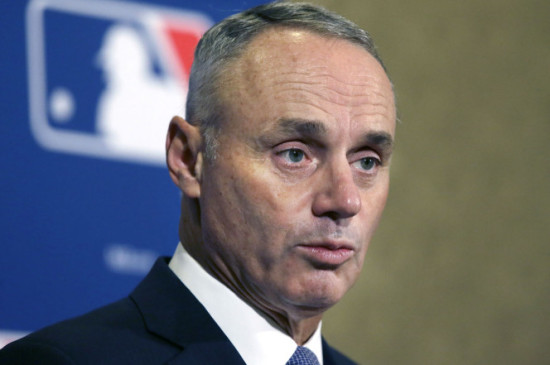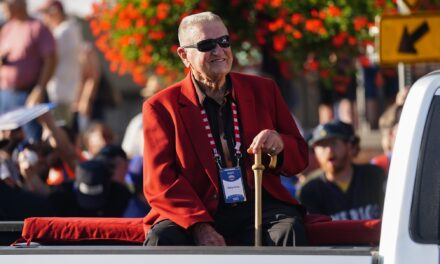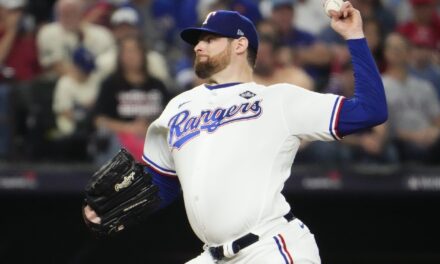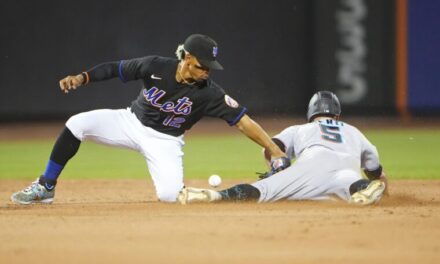It’s time for baseball’s mid-season hiatus. Though we are past the statistical halfway point, the All Star break is typically regarded as the end of the season’s first half. While the Mets have had their struggles, sitting at 42-48 and seven games out of the last wildcard spot, Major League Baseball is doing well in 2023. Attendance is up, television ratings are up, and there are several intriguing storylines, such the pursuit of a .400 batting average by Luis Arraez, and resurgence of teams like the Baltimore Orioles and Cincinnati Reds. This year, MLB instituted new rules, and The Athletic recently asked players how they thought the rules were impacting the game.
For the survey, 103 players were polled, representing 22 teams. They were asked to rate if the rules were good for the game on a scale of one to five, with one being “not good” and five being “very good.” Here is what they said.
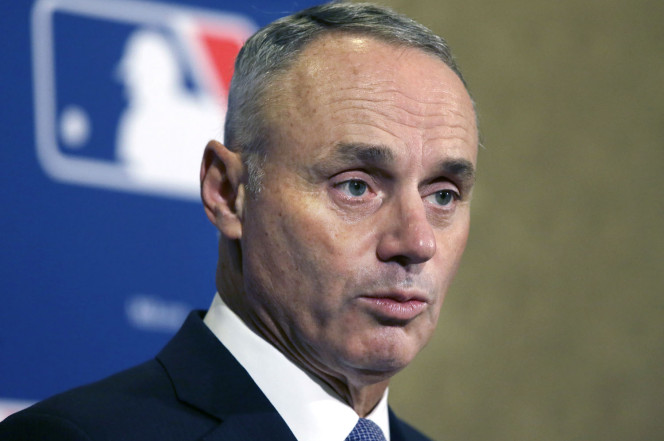
Shift Ban
The players gave the shift ban an average score of 3.9. Here are a couple of their verbatim responses:
On giving it a 5: “Because I’m a left-handed hitter. The shift killed my career for about three years.”
“Five for me (on banning the shift). I love making cool plays and getting hits on the other end.”
“I’m not much for telling teams how they can and can’t line up.”
Bigger Bases
The larger bases are also seen as a favorable development. The bigger cushions averaged 3.7 in the poll.
“For safety reasons, as a first baseman, I like it.”
“Anything to keep us safer is great.”
“Bigger bases have no real effect. People are stealing more, but it’s not because of the bases.”
Pitch Clock
The rule causing the most discussion this season is the pitch clock. In fact, during the Mets’ telecast on July 9, a point of discussion was whether veteran pitchers are being disproportionately affected by having to suddenly change the way they’ve done something they’ve for many years. Also, it’s fair to wonder if the need to be ready more quickly had an even greater effect on older pitchers, such as Max Scherzer and Justin Verlander. In the poll, the players gave the pitch clock a 3.7 for its impact on the game, and had some interesting comments.
“I’d say five, but there have been a lot of pitcher injuries and I want to see how it plays out through the whole season, to see if they find a correlation between the clock and injuries. But otherwise, it’s great.”
“The clock itself is fine. The result of an at-bat should not be dictated by the clock.”
“Everybody runs the clock differently. Some teams run it fast, some teams run it slow. Some teams, soon as the out happens, the 30-second clock starts. Some teams wait for the ball to get back to the infield before the clock (starts). It’s got its pros and cons, but overall I think it’s good. It shortens the games. … It’s saving our bodies and it’s saving time.”
The last quote is interesting about inconsistencies across ballparks. MLB has to correct that. As a follow up, players were asked if the pitch clock rule should be tweaked for the postseason. The general theme of the responses was that the clock should be set at least 20 seconds for all pitches in the playoffs. That seems to make sense, as it’s not a good look for the game to have critical at-bats decided by clock violations. One player put it this way:
“I wouldn’t mind seeing 20 seconds between pitches with nobody on and 25 or 30 with people on. In the postseason, every pitch is so magnified … there are high-stress pitches being thrown and you’re making them rush through it and it can potentially get dangerous.”
The players were asked about cities for expansion, and overwhelmingly, they said Nashville was the best choice placing Music City well ahead of Portland and Montreal. One player noted, and logically so, that uptake of a team in Nashville may be slow, since fans in the area are likely already rooting for the Cincinnati Reds, St. Louis Cardinals, or Atlanta Braves.
Though Commissioner Rob Manfred is not a favorite among baseball fans, the new rules, though not perfect, have increased the pace of play, and added more offense to the game in 2023 (hits, stolen bases, and runs are up). Based on the poll referenced above, the rules have been received well by the players, with opportunities for future adjustments. Time will tell if Manfred and the Competition Committee are open to the idea of making modifications.


